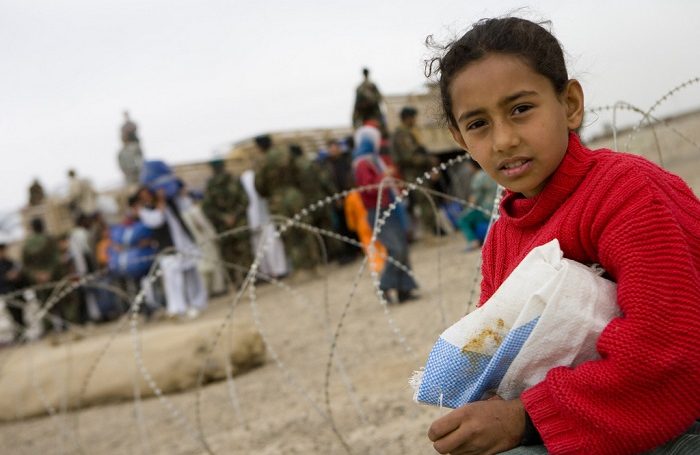
The debate about reforming the international humanitarian system has centered on financing, institutional restructuring, balance of power between international and local actors, humanitarian principles and access. How to place the affected populations at the centre has been another long-standing topic that featured greatly in the consultations leading up to the World Humanitarian Summit (WHS). Yet, the Summit itself resulted in very little substantive commitments on accountability to affected populations, especially when compared to more concrete outcomes such as the agreement on humanitarian financing known as the “Grand Bargain”.
In the current system, accountability to affected people is not seen as a top priority neither by donors, host governments, nor by the humanitarian agencies. The UN agencies have been described to have grown too big and out of touch with realities on the ground and others as too busy with reporting requirements imposed by donors. The bureaucratization of humanitarian work has been identified as a factor that reduces accountability to a technocratic exercise. Improving this situation cannot only be done through technical adjustments. According to the 2015 Humanitarian Accountability Report, this requires a more profound reflection on what effective humanitarian action means to the affected people by all key stakeholders including governments, donors and the humanitarian agencies.
So how would it actually look like to place people at the center of humanitarian action?
Yves Daccord, Director-General of the International Committee of the Red Cross (ICRC), forecasts a future where “crisis-affected individuals will determine which services are required and who is best placed to provide them, depending on their own assessments of quality and relevance to the context in question”. Findings from the focus groups with displaced populations in the Middle East held as part of the WHS consultations showed that this remains a distant goal under the current circumstances, with humanitarian agencies receiving the lowest rating (2.5 out of 10) for considering the opinions of affected populations.
One may wonder how realistic it is to expect crisis-affected and distressed individuals to think straight and make informed decisions. Yet, it is precisely in such situations, that people tend to show a great deal of agency and resourcefulness. Unfortunately, crisis situations also accentuate existing inequalities and power dynamics. Thus, besides consulting with affected people about their needs, vulnerabilities and preferences, accountability requires responding to them by working together with the communities, while being mindful of the underlying power relations. Transferring decision-making abilities should mobilize the people and promote ownership, but the challenges to achieving this differ between conflict and disaster settings, or between working with refugees and their host communities. This means tailoring communication, participation, feedback/complaints and collective decision-making mechanisms to the specific contexts and people with which the humanitarian agencies work.
Affected populations are never a homogenous group. Yet, if at all, it is the voices of the most powerful that tend to get through, while the marginalized continue to be left out. Besides raising serious concerns about upholding humanitarian principles, this risks fueling local tensions and undermining humanitarian access. Practitioners admit that a “principled response costs money” and that “reaching the most vulnerable is always the most expensive”. The push for efficiency coupled with the funding crisis in the humanitarian system means that spending time and money on picking up diverse voices and trying to follow up on them is not rewarded.
For this to change, the challenges inherent in ensuring accountability and its practical benefits for humanitarian action have to be better understood by the donors. The Inter-Agency Standing Committee (IASC), already brings together key humanitarian actors from inside and outside the UN system for coordination purposes and has a Task Team on Accountability to the Affected Populations. The very first step will be to consolidate this team’s knowledge about realities encountered in the field and extend its membership to include representatives of the donor community. Also, while a lot has been done to create common standards and facilitate coordination at each phase of the humanitarian response cycle, more can be done to improve its input side. Specifically, this includes better profiling of affected populations through the collection of disaggregated data, which in turn requires more strategic allocation of resources to strengthen analytical assessment, monitoring and evaluation capacities of the humanitarian actors.
Strengthening the output side, that is, responding to the identified needs, gaps and trends together with the local communities requires a context-specific approach. One common step that may help to smooth the transition from input to output is to ensure that humanitarian response not only takes into account local needs, but also the variety of local assets. These include capacities of the local populations (ranging from language skills to traditional knowledge) as well as formal and informal community structures (from local government institutions, if these are functioning, to neighborhood networks). UN and other humanitarian actors should incorporate these assets throughout their response cycle – not just as part of a situational assessment exercise done during the initial needs assessment. Doing so will help facilitate trust-building with the affected communities, to understand what is going on in the background, and to better respond to fast-changing situations.
Getting to know the crisis-affected communities better may also help to remember that they are the very raison d’être for the humanitarian action. It’s time to get back to basics.
Further Reading on E-International Relations
- The Gaza Crisis: Restrictions and Challenges to the Humanitarian Space in Gaza
- Humanitarian Intervention: Alive and Kicking
- Opinion – Impacts and Restrictions to Human Rights During COVID-19
- Opinion – Dangers Within Humanitarianism to Israel’s National Security
- Queer IR and The Coloniality of Humanitarian Intervention
- The Responsibility to Protect Has Turned into a Strategic Mistake